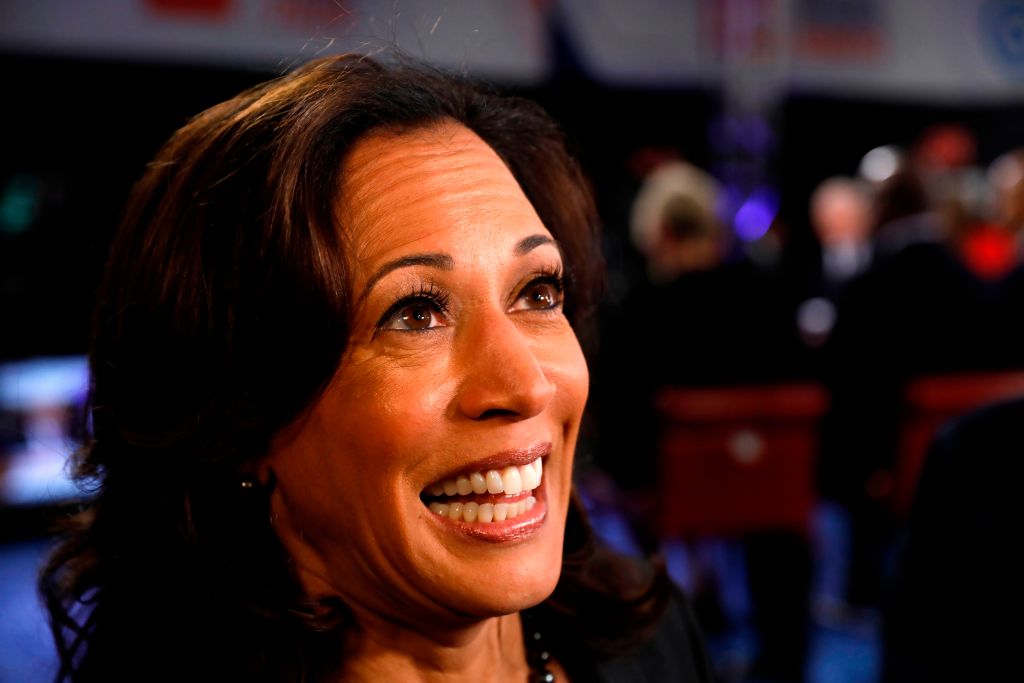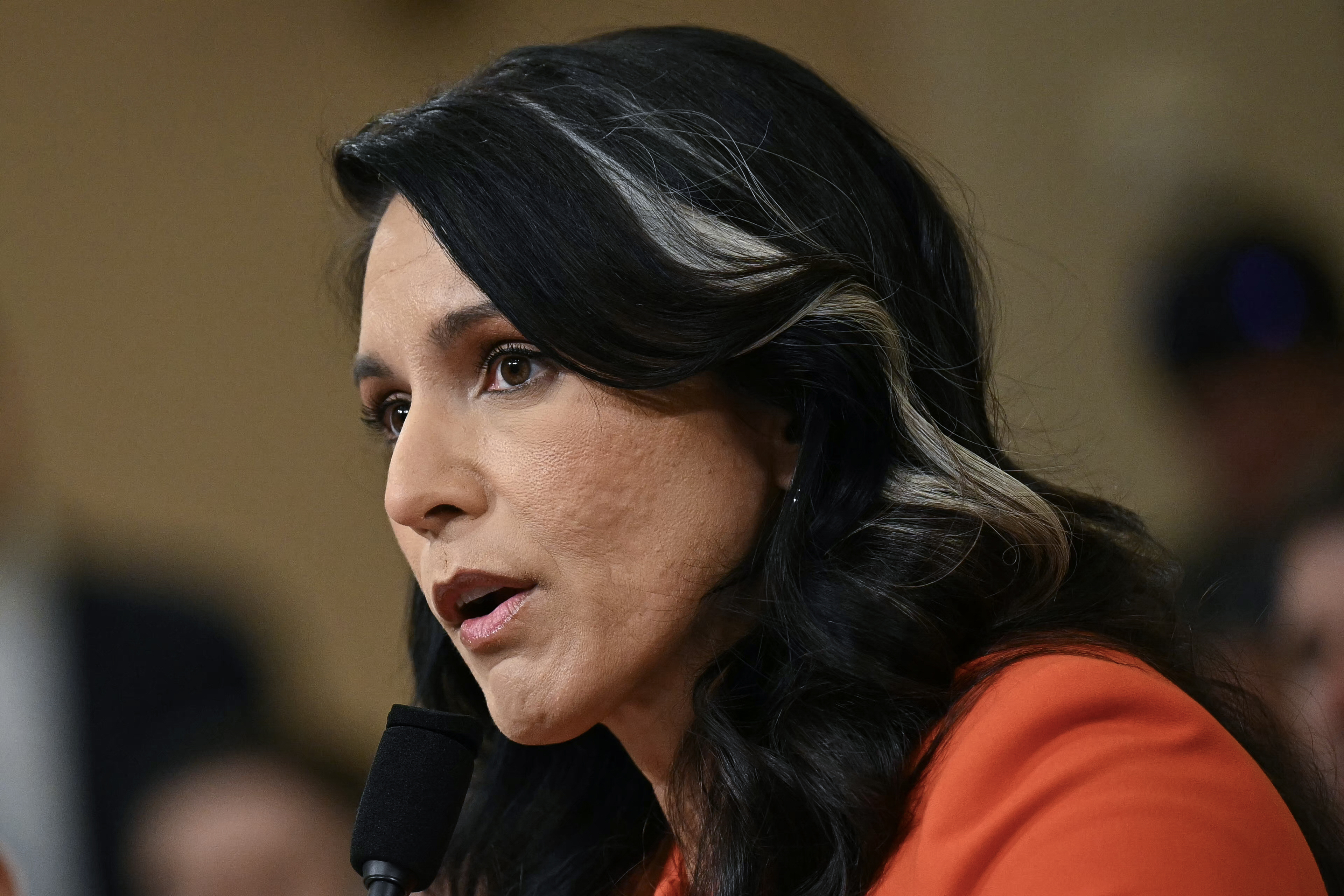Sen. Kamala Harris has been positioning herself as a supporter of sex worker rights lately. But listen closely when she talks about the issue and a different story emerges. It’s a disconnect that highlights Harris’s larger pattern of obscuring her positions, plans, and past.
Twice when asked outright about the decriminalization of prostitution — first by Terrell J. Starr of The Root and then during a televised CNN townhall — Harris has answered in a way that’s been characterized as supportive. But both times she has described her preferred system as one in which ‘johns’ would still be arrested. That is not decriminalization.
Decriminalizing prostitution means neither paying for nor selling sex is illegal so long as it takes place between consenting adults. This differs from legalization, which refers to systems where it’s OK to engage in commercial sex in specific circumstances (i.e., in a brothel, with a city license, etc.) but still illegal otherwise. Sex workers largely advocate for full decriminalization, although either system would be better than what the US has right now (where selling and paying for sex is illegal in all but a few counties in Nevada).
What Harris seems to now endorse is known as the ‘End Demand’ or ‘Nordic model’ of prostitution law. This is a system in which sex workers themselves are decriminalized in some circumstances, while their customers can still face arrest.
Sold as a supposedly feminist and enlightened policy, criminalizing ‘johns’ creates the same harms associated with full criminalization. Sex workers are still forced underground, facing greater danger and less safe conditions, and have to work without normal market mechanisms and legal protections to help them. Human rights groups like Amnesty International and sex worker rights organizations around the world oppose it.
But support for the Nordic Model fits with Harris’s self-branding as a ‘progressive prosecutor’ who offers a ‘smart on crime’ third way between the excessively carceral conservatives and social justice-minded but squishy liberals. It’s a schtick she’s carried over into her bid for Democrats’ 2020 presidential nod, after perfecting it during years as attorney general of California and district attorney of San Francisco.
In an autobiography released in January 2019, Harris casts herself as a reformer from within the system. While she may have taken some progressive stances, such as support for same-sex marriage, her office also fought to further criminalize the parents of truant children and bragged about ramping up prosecution of ‘misdemeanor quality-of-life crimes.’
In 2007, San Francisco police made 1,583 prostitution arrests, the Associated Press reported at the time. A proposed 2008 law would have removed criminal penalties for prostitution there and told cops to stop targeting Asian massage parlors with stings. Harris opposed it, saying prostitution was not a victimless crime, and her office encouraged more massage parlors raids.
In 2005, Harris told the San Francisco Examiner she agreed with ‘the spirit’ of a proposal to impound the cars of people caught publicly soliciting prostitution. She said the important thing was ‘to hold accountable the true perpetrators of prostitution — the johns, the pimps and the traffickers.’
No one — then or now — wants to decriminalize violence, coercion, exploitation, or minors in prostitution. But putting all customers on the wrong side of this line is silly and damaging. In what other industry do we punish people purchasing services from a consenting adult but not the adult offering those services? Why aren’t sex workers ‘perpetrating’ prostitution accountable for themselves? What about agency?
And while supporters of the Nordic/End Demand Model say they’re concerned about sex worker well being, how can people sell sex in a safe and stable way when their clients are criminalized?
Harris also believes in criminalizing online tools that make life safer and easier for sex workers. In 2013, Harris was among the first crop of state attorney generals to plead with Congress to amend Section 230 of federal communications law, which would let them prosecute Backpage for prostitution brokered through the site’s ads. This change would eventually be accomplished through the 2018 law known as FOSTA. But before that, Harris – as one of the last things she did in California before taking a seat in the US Senate in 2017, and knowing full well that Congress had forbidden it – had Backpage’s founders and CEO arrested on pimping charges, twice. Both times a judge dismissed those charges.
Harris may be good at playing up both parts of the progressive prosecutor schtick individually – championing, for instance, ‘Medicare for All’ while promising to make the case against President Donald Trump. But she still seems ill-equipped to answer for her record of excusing and exacerbating some of the criminal justice system’s worst practices.
During last week’s Democratic presidential debate, fellow candidate Rep. Tulsi Gabbard grilled Harris about her sordid record as top cop in California. Harris ‘kept people in prison beyond their sentences to use them as cheap labor for the state of California’ and ‘put over 1,500 people in jail for marijuana violations,’ Gabbard said, adding that Harris owed an apology to those who ‘suffered under [her] reign.’
All Harris offered in response was an insistence that she is ‘proud’ of her record and, later, an ad hominem attack on Gabbard. Meanwhile, Harris’s press secretary tweeted that Gabbard was supported by Russia. This despite more than six months of similar critiques of Harris in the media.
‘Time after time, when progressives urged her to embrace criminal justice reforms as a district attorney and then the state’s attorney general, Ms. Harris opposed them or stayed silent,’ wrote Lara Bazelon, a law professor who has worked with The Innocence Project, in a January New York Times op-ed. This included Harris fighting ‘tooth and nail to uphold wrongful convictions that had been secured through official misconduct.’
While dramatic abuses like that garner the most attention to Harris’s record, her long history of anti-sex worker stances is also worth condemning. But anyone waiting for an apology from Harris — or even for her to openly grapple with this record — will likely find themselves disappointed.

























